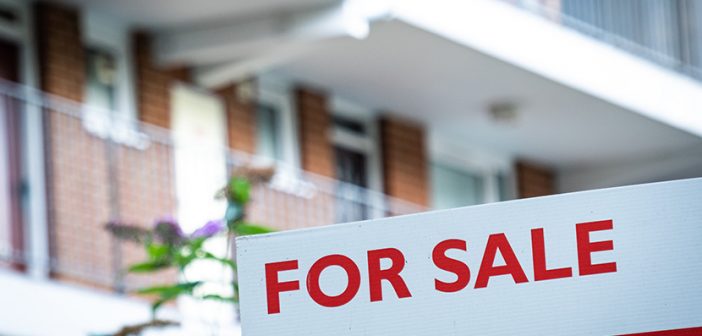How Long Does It Take to Buy a House? A Step by Step Guide & Average Timeline
How Long Does It Take to Buy a House? A Step by Step Guide & Average Timeline
December 22, 2020

So you’re ready to buy a house, but you aren’t sure how long this whole process is going to take. While each deal is different and can vary in a multitude of ways, for the most part, buying a house is pretty straightforward.
Assuming that you are going to be taking out a loan for the purchase of your new home, you will have to follow most, if not all, of the steps below.
If you are going to be paying cash for your home, however, it will be up to you whether to follow many of the steps. For cash buyers, steps 3 and 6 are obsolete, and it will be your choice to do steps 7, 8, 9, and 11 or not.
How to Buy a House: 14-Step Home Buying Guide
1) Save for a Down Payment
This will be entirely dependent on your personal financial situation. I will not be including this as part of the end analysis on how long it takes to buy a house, but it is a very important (if not obvious) step in buying a home.
For some special types of loans, you don’t have to put any money down, and this step will take no time at all, literally.
Most of the time, though, you should save 5–20% of the purchase price as a down payment.
As an example, for a home that you are going to purchase for $200,000, you would need anywhere from $10,000 to $40,000 saved as a down payment.
Before you submit an offer, put all of the money that you have saved into a savings or checking account that you aren’t going to be touching until you close on a home. This will come into play in step 12.
2) Find an Agent You Like (1–10 Days)
This is one of the most important steps when looking for a home. You’re going to be in contact with your agent through the entire home-buying process. You are going to spend hours looking at houses together and will look to them for advice when it comes time to put in offers and negotiate.
You must take the time to search for a qualified agent during this period. One that has experience buying houses in the area that you are looking for and knows the ins and outs of the market.
You also want to find one that comes recommended by others who have bought houses with them. These don’t have to be people that you actually know, but that is helpful.
On top of that, you want to find someone who matches your personality and the goals that you have for purchasing a home. For example, if you are a very laidback person, it might not be in your best interest to go with someone who is always at a level 30 out of 10.
3) Get Pre-Approved for a Loan (1–3 Days)
This process is very simple and can usually be completed within 24 hours.
Whatever lender you choose is going to ask you some pretty simple qualifying questions about your financial situation. They want to know how much you make, either as an individual or a household, per month. They are also going to want to know what recurring debts you have.
Debts can be other homes that you own, car payments, and even credit card bills that you owe. These aren’t the only types of debts, just the most common.
After a short phone call, the bank will run a credit check on you to make sure that you are a qualified individual. Don’t worry too much about this part, even if you don’t have the best credit; as long as your income minus your debt is above the bank’s threshold, you should be able to get a loan.

4) Go Look for Your House
This is another portion of the process that I will not include in the final time calculation of how long it takes to buy a house. Your timeline can vary wildly depending on the market that you are searching in and how strict your criteria are.
It is highly recommended that you spend some time in this phase of the process. While it is possible to find your perfect home in the first one that you look at, it is a great idea to see as many as you can stomach.
Once you have seen a home, or few, that you like, you should go by at different times of the day to see what the neighborhood is like in the morning, night, and during high traffic times when people are really coming and going from their houses. This will give you a good sense of the place where you are going to live.
5) Submit, Negotiate, and Sign a Contract (2–10 Days)
You found a home that you want to buy, congratulations!
The next step of the process is to decide what you want to offer the seller as a purchase price. Then you will have to decide if you want to ask for any closing costs, repair budgets, or any other contingencies that you may require.
Your agent will get the offer written up for you to sign, and get it submitted to the seller’s agent after you have done so.
If the seller accepts your offer, great. A lot of the time, they will come back with what is called a counteroffer. It is at this point that you can decide to accept their counter or make a counter of your own.
After the back and forth has finished, you get to sign the finalized contract and move into the escrow phase of buying a home.
6) Get the Loan Finalized
There are quite a few steps to this process that make getting a loan a little frustrating.
Remember that pre-approval letter that you got before you even started looking for a home? Throw it away, because it means nothing anymore. The bank is now going to dive deeper into your financials and make sure that you have not done anything financially crazy since getting that letter, like buying a brand new car that your income won’t be able to support with a home loan.
Along with your personal information, the bank is going to want to know about the house. This part of the process is much longer than your financials, but will not require you to do very much, thankfully.
From here, many of the following steps will be going on simultaneously.

7) Process Title Work (3–5 days)
To get a loan on a home, the bank is going to need to know that the house has a clear, or clean, title.
A clear title means that there are no outstanding liens on the property. Liens can be anything from work that had been done to the property but never paid for to unpaid utility bills. It also shows that the previous sales transactions for the home were done properly, and the current owner is actually allowed to sell the home.
Title work is going to be done by your title company or closing attorney and will require no work on your part, but it is part of the waiting process.
8) Get an Appraisal (3–10 Days)
The appraisal is a very important step in securing a loan on a home. Depending on the type of loan that you are getting, a bank will only lend up to a certain amount of the appraised value.
Let’s use that $200,000 home from our example earlier to illustrate how this works.
If you had that home appraised, and it came back that the appraiser thought it was valued at the $200,000 mark, then great, the bank will move forward with the loan approval process.
On the other hand, if the appraisal came back at $180,000, then the bank is not going to loan you the amount that you had requested. In this situation, you would either have to come up with a larger down payment, or you would go back to the negotiating table and reduce the sale price of the home.
Banks do this because if you were to stop paying on the loan, they want to know that they can get their money back by selling the house for around the appraised value.
The process of getting an appraisal is pretty simple. Most of the time the agent or lender you are working with will have an appraiser, or a few, that they work with and trust. Scheduling the person to come out to the home can take a few days depending on their workload.
Once you have the appraisal scheduled, the actual event is usually between one and two hours.
After the appraiser has done their walkthrough of the home, they will go put together a report of the home in its current state, versus comparable homes that have sold recently around the area that they found to price match against.
The appraisal is not something that you really need to be there for, as they are not going to be getting into the nitty-gritty of the home that you are looking to purchase. It is the next activity that you should set aside time for.
9) Get an Inspection (3–10 Days, 1–3 Hours Active Time)
While this is not required by a bank, it is probably one of the most important things that you can do before you purchase a home. A good inspector is going to pick out every little thing that they can find wrong with the house, as well as the big stuff.
Don’t skip this step, even if you think you have seen everything that is wrong with the home—or if you don’t think there is anything wrong. I have seen new-build homes that an inspector has found issues with.
Just like the appraisal, it may take a few days to get a good inspector scheduled to come out and take a look at your home, so you want to get this process started as early as possible. Depending on your contract, you will only have a brief window to get your due diligence done here.
The inspection itself can take anywhere from one to a few hours, depending on the size and type of home that you are looking to purchase. The inspector is going to get on the roof and look, go into the attic, and crawl under the house.
Once they have inspected the property, it usually takes them about 24 hours or so to get you back a report with all of the things that they found wrong with the home.

10) Negotiate Repairs (2–7 Days)
Now you know all of the things that are wrong with the house and need immediate, or not so immediate, repair. Unless you knew that you were buying the house as-is, meaning that the seller said upfront that they were not going to make any repairs, this is your chance to put that negotiating hat back on.
You will submit a list of the things that you want to have repaired before purchasing the home to the seller. You can ask them to make the needed repairs, or credit you some money and have them repaired yourself.
Generally, you can get this sorted out within a couple of days, but sometimes negotiating takes a little longer. This won’t eat into how long it takes to buy the house though, as it will be getting done early on in the process.
11) Purchase Homeowner’s Insurance (2–3 Days)
Any bank that you get lending through is going to require you to have homeowner’s insurance on the property. They will even wrap your insurance payments into your monthly mortgage payment (as well as taxes if you choose) so you don’t have to worry about an extra bill to pay. This is where the term PITI comes from: Principal, Interest, Tax, and Insurance.
You can usually get a quote within 24–48 hours after a brief phone call with an insurance agent. In very rare instances, it will take a little longer.
You can shop around for quotes on this, which will take you a couple of hours of active time on the phone or internet, or just go with a company you trust already. As long as you have coverage set to begin the day that you are set to close on the house, then you are good to go.
12) Get Your Closing Funds Ready (36 Hours Before Closing)
Up until this point, you should have done as little as possible to the money in your bank accounts. You don’t want to be moving money around from bank account to bank account, as that will make it harder for your lender to track your money and get you secured for a loan.
You are going to want to get wiring instructions and the closing amount that you will need from your closing company or attorney for this step. Make sure that you verify the wiring instructions with them, as this is a place where fraud can be committed and you don’t want to lose all of your hard-saved money.
Most of the time, you can also get a cashier’s check for the closing instead of wiring the money.
After you have the amount you need and the instructions for wiring, you just need to give the wiring details to your bank. You can do this either on the phone or online, depending on your bank.

13) Final Walkthrough (1–3 Hours Before Closing)
This step is not necessary if you haven’t had the seller make any repairs to the home, but you can always go by and make sure that they haven’t made any strange changes to the home before you purchase it.
This is your last chance to see the home before it becomes your problem to deal with.
If you have asked the seller to make any repairs, this is the final point to verify that they have done what they said they were going to do (although waiting until the last minute like this probably wasn’t a good idea).
14) Close on Your New House! (1 Hour)
You have made it to signing day, congratulations!
The signing process can be a little time-consuming and wrist-tiring. You are going to be signing your name more than you ever have before.
Your closing agent will walk you through all of the documents that you are going to be signing and make sure that you understand each of the places that you are putting your signature.
Don’t rush this process, as you don’t want to sign something that you don’t understand. If you have questions, ask them. This is what the agents are getting paid for, so take advantage.
How Long Does It Actually Take?
Remember that a lot of these tasks are happening simultaneously and the totals given for each step are not necessarily cumulative. However, this doesn’t mean that you are going to be able to buy a house in 17 days.
In reality, in between each step that a bank requires, there are a few hands that are stirring the pot. Not every step is going to be as simple as just getting an appraisal or clear title.
In general, it takes between 30–60 days, with an average of about 45 days depending on the market you’re in and the bank you’re working with.
Looking to buy a new house in South Jersey? Fill out the form below and we can customize your dream home based off your budget and desired zip code.
See original article at “https://www.biggerpockets.com/blog/how-long-buy-house”
![]()
Top





